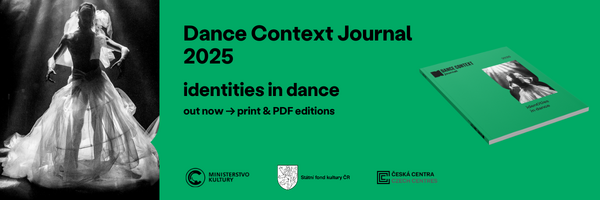Fish
Lenka Bartůňková, a Sazka Prize laureate for the best new artist in dance, presented her new and long-awaited performance Ryba (Fish) – a dance theatre about a fish’s journey through the ocean. The premiere of the performance took place in the Ponec Theatre on 26th October 2009.
The story begins on one summer night in a place, where there are fireflies on their journey towards a magical place with an old lighthouse and a quaint atmosphere. We emerge on a windy shore – on the outskirts of one town in Galicia, where people’s lives are centered on fishing. To pass time of long waiting before the fishing itself they engage in drinking and gambling. (The audience also gets involved in one of the games, in which the winner is awarded a mermaid. Bingo! But there is more than one winner). Fish is actually not so much about fish as about the dreams and hopes of people who live on the coast, who are imprisoned in their cast nets on which their depend for their livelihood. Entangled in the nets which bind them, but which provide some certainty as well. Each of them has their dreams, which they need to voice in order to support them, to find the courage to destroy the net which encircles them and to look towards the other shore, which from times immemorial lures them by its eeriness, remoteness and something new.
Both humor and kindness as well as struggle and certain roughness permeate the performance. Life on the shore is tough on the settlers. But they still find a shelter which they can run to when their dreams are disappearing under water. Fish catch their desires and wishes that had been cast away and return them into their lives. In the story, allegory alternates with reality and dancers´ rhythm thus also changes accordingly. Fish, drunkards, they all have different ways of dancing, as do those who are celebrating their catch of the day.
Fish is after quality in scenography as well. The props create a realistic atmosphere, bluish and greenish lights accentuate the character of the place which gives rise to an interesting interconnection between the artistic and the movement. Nets are hanging in the back part of the stage, they are often rewound and cast into water again. There are bottles scattered on the shore, but the dancers work with them within another message they communicate, which is also true about the lottery balls which at one moment serve as a padding in the bride’s bra, only to be transformed into lottery balls in a Bingo game a few moments later. The paper box with fishing gear and various games also has its function; to put it short, everything is being moved from place to place and used with a purpose. The selection of music complements the perfect evocation of maritime mood – a mix of Spanish songs, sounds, the murmuri of the sea and fish – and it supports the atmosphere nicely.
In this kind of environment, the swinging motion feels very soft and the interprets sail through the space as mute fish and loquacious fishermen alike. The movement vocabulary was chosen truly effectively without anything which Ryba would have no need for. The interprets Lenka Bartůňková, Eliška Kašparová and Johana Matoušková enjoy the principles which are inherent to themselves, and their performance is persuasive and entrancing. The same is true about the dancers Jan Březina and Karel Kratochvíl, who keep their elaborate style and who are able to win the audience’s attention quickly and well. Moreover, this work with a partner is not quite characteristic for the choreographer, yet it is mastered perfectly, without using common clichés of contact improvisation.
Great dancers, the continuity of the individual forms of art and the atmosphere of the selected theme all move contemporary dance theatre yet another step forward and thus present a fresh way of working, which apparently functions very well and which for Lenka Bartůňková stands for a clear victory over the curse of the Sazka Prize.
Ryba as dance theatre about the journey of several fates floating in the ocean is certainly worth seeing.
Written after a repeat on 27th October.
Translation: Hana Dušáková
Written after a repeat on 27th October.
Translation: Hana Dušáková


